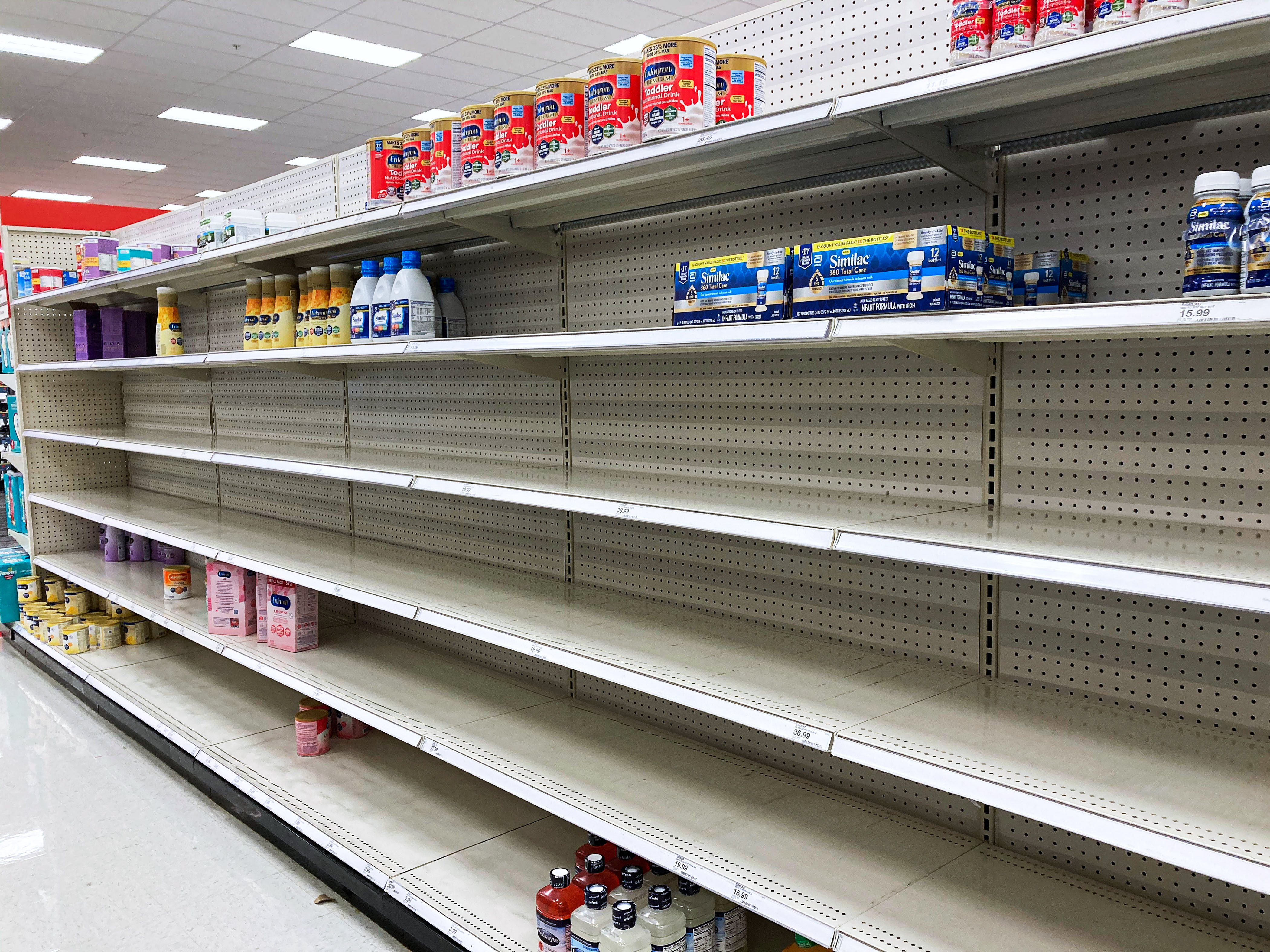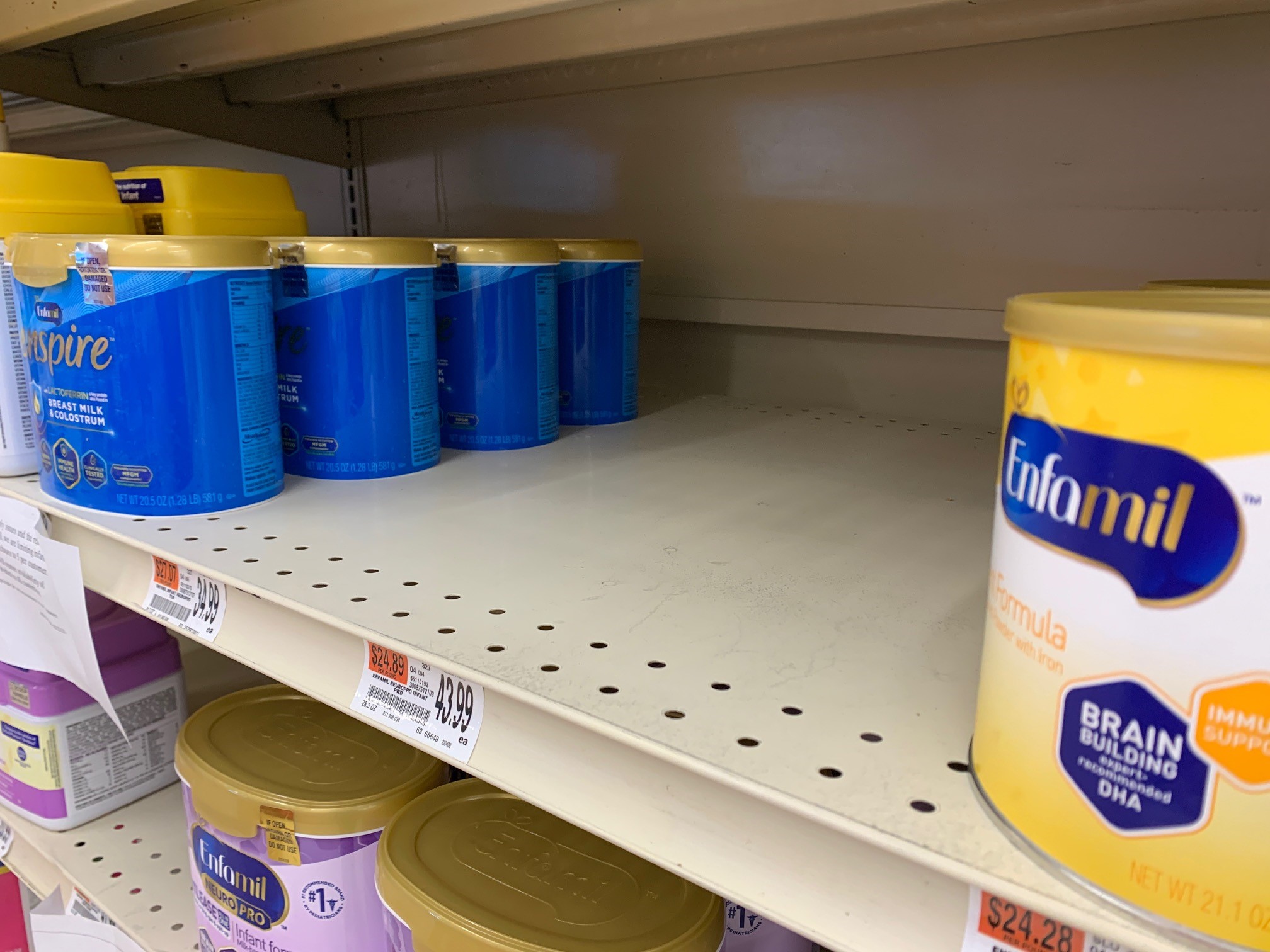The shutdown of a baby formula plant in Michigan, amid a federal investigation into rare bacterial infections the FDA says might have contributed to the deaths of two young children who consumed product from the facility, is continuing to cause consumer headaches around the nation.
New mom Ashley Bartley of Vermont is one of countless parents still struggling with the ongoing baby formula shortage.
"I’m breastfeeding, but unfortunately have to supplement with formula," Bartley explained, as she fed her 14-week-old daughter, Reagan Rose.
Supply chain issues and recalls during a federal investigation into whether certain products were possibly contaminated with harmful bacteria have left many retailers with bare shelves and purchase limits.
Get Boston local news, weather forecasts, lifestyle and entertainment stories to your inbox. Sign up for NBC Boston’s newsletters.
Additionally, Bartley said Reagan has reflux, meaning she needs a specific type of formula — making scoring a canister even tougher.
"I think being a parent, you’re going to have anxiety no matter what but this is a different kind of anxiety," Barley told NECN & NBC10 Boston. "It’s bone-deep anxiety of, 'Is my child going to get what they need?'"
Dr. Michelle Shepard, a pediatrician at the University of Vermont Medical Center, said she and her colleagues have received many calls from really stressed parents.
Shepard emphasized that parents and caregivers should not switch to cow’s milk or alternative milks like almond or hemp, because they don’t have enough protein or other nutrients babies need. She also said absolutely do not water down the formula you do have.
More on the baby formula shortage
“If you water down formula, it can actually make infants sick. So especially under six months, if you put too much water in the formula, the baby’s kidneys aren’t yet mature enough to handle all that extra water, and so it actually could be damaging or harmful to them,” Shepard cautioned.
Additionally, the UVMMC pediatrician advised parents to not buy products from overseas that might not have been regulated by the FDA.
The FDA provides an online list of questions and answers for consumers about baby formula:
Empty store shelves have particularly pained parents who use nutritional benefit programs such as WIC, for women infants and children, because the company at the center of the voluntary recall, Abbott, supplied many agencies nationwide.
Vermont’s WIC office said it is helping families find alternative brands that they can purchase for now through a USDA waiver.
Karen Flynn, Vermont’s WIC director, said the shortage does seem to be increasing interest in breastfeeding coaching and resources like breast pumps it also provides.
"Anecdotally, I know that more families have signed up for some of the breastfeeding classes we offer," Flynn said, noting the health benefits of breastmilk — if moms are able to breastfeed.
The Vermont Department of Health provides online resources for breastfeeding families.
As NECN & NBC10 Boston reported last month, the Vermont Retail and Grocers Association asked consumers to not hoard formula, to ensure more supply is available for others.
In that April report, the nonprofit Vermont Donor Milk Center, which sells breastmilk to parents who have prescriptions from their pediatricians, co-executive director Rachel Foxx said the formula shortage has led to new interest in the center as an option.
"We’re getting a lot more phone calls asking questions about donor milk," Foxx said.
The donor milk center is not always an option for every mom, though, as it does carry a higher price than powdered formulas — due to all the work it takes to pasteurize and screen milk donated by other moms.
As for Ashley Bartley, who said she is eager for relief from those formula-hunting headaches, she’s glad to hear leading manufacturers promise they’re working to increase supply of formula, safely.
"I hope we can find a solution," Bartley said.



